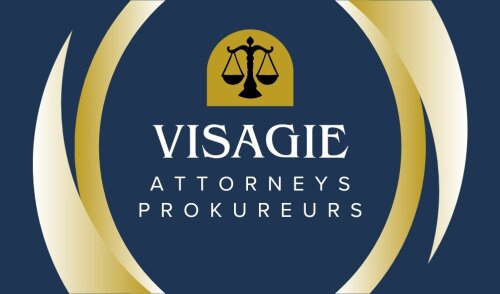Best Collaborative Law Lawyers in Rustenburg
Share your needs with us, get contacted by law firms.
Free. Takes 2 min.
Free Guide to Hiring a Family Lawyer
List of the best lawyers in Rustenburg, South Africa
About Collaborative Law in Rustenburg, South Africa
Collaborative Law in Rustenburg, South Africa, offers a unique approach to legal disputes, particularly in the field of family and civil law. It focuses on a non-adversarial process where parties involved aim to reach a mutually satisfactory settlement without resorting to litigation. This form of law emphasizes open communication, negotiation, and cooperation among all parties, with each represented by a specially trained collaborative lawyer. Given Rustenburg's growing legal landscape, Collaborative Law provides an alternative method for resolving disputes amicably and efficiently.
Why You May Need a Lawyer
There are several situations where an individual may require legal assistance in Collaborative Law in Rustenburg:
- Divorce or Separation: Individuals looking to end a marriage or partnership amicably often seek collaborative legal assistance to negotiate terms without going to court.
- Family Disputes: When family members face disputes, such as custody or inheritance issues, collaborative lawyers can help facilitate constructive dialogue.
- Business Conflicts: Collaborative law can be beneficial for resolving business disputes where maintaining relationships is important.
- Civil Disputes: Issues such as property disputes or contractual disagreements can also be resolved through collaborative efforts.
Local Laws Overview
The legal framework in Rustenburg, and South Africa more broadly, supports the use of Collaborative Law especially in family law matters. The process is recognized as voluntary and must be agreed upon by both parties. Key aspects include complete transparency and the commitment to disclose all relevant information. Any agreements reached are legally binding once documented and can be enforced by the court if needed. Lawyers in this field must have specialized training to facilitate negotiations effectively.
Frequently Asked Questions
What is Collaborative Law?
Collaborative Law is a legal process that allows parties to resolve disputes without going to court. It involves negotiation and open communication, aiming for mutually satisfactory outcomes with the help of trained lawyers.
How is Collaborative Law different from traditional litigation?
Unlike traditional litigation, Collaborative Law is non-adversarial and focuses on cooperation rather than conflict. The parties work together with their lawyers to find solutions rather than competing against each other in court.
What types of disputes are suitable for Collaborative Law?
Collaborative Law is suitable for family disputes, divorce or separation cases, business disagreements, property issues, and civil disputes where maintaining relationships is beneficial.
Is participation in Collaborative Law mandatory?
Participation in Collaborative Law is voluntary. Both parties must agree to the process and commit to resolving their issues through negotiation and collaboration.
Can agreements reached through Collaborative Law be enforced by the court?
Yes, agreements reached in Collaborative Law sessions can be documented and made legally binding. They are enforceable in court should the need arise.
What happens if we can't reach an agreement?
If parties cannot reach an agreement through Collaborative Law, they may need to consider other dispute resolution options, including mediation or litigation. It's important to note that if litigation is chosen, the collaborative lawyers involved typically cannot represent the parties in court.
What qualifications should a collaborative lawyer have?
A collaborative lawyer should have specific training in dispute resolution and negotiation techniques. It's recommended to seek a lawyer who is experienced and has a track record in handling collaborative cases.
How long does the collaborative process take?
The duration of the collaborative process varies depending on the complexity of the issues and the willingness of the parties to negotiate. It can take from a few sessions to several months.
Is Collaborative Law cost-effective?
Collaborative Law can be more cost-effective than traditional litigation because it generally involves fewer legal processes and relies on negotiation rather than court battles. This can result in lower legal fees and quicker resolutions.
Are conversations during the collaborative process confidential?
Yes, discussions and negotiations during the collaborative process are confidential. This encourages open communication and facilitates more candid discussions.
Additional Resources
Several resources and organizations can assist individuals seeking Collaborative Law services in Rustenburg:
- Law Society of South Africa (LSSA): Offers information and resources related to finding qualified collaborative lawyers.
- The Family Mediators Association of the Cape (FAMAC): Provides additional support and guidance in family law mediation and collaborative practices.
- Gauteng Family Law Courts: Can provide legal guidance and assistance for family law disputes through collaborative approaches.
Next Steps
If you require legal assistance in Collaborative Law, consider the following steps:
- Assess Your Situation: Determine if your dispute could benefit from a collaborative approach.
- Research and Select a Lawyer: Choose a lawyer with experience and training in Collaborative Law.
- Schedule a Consultation: Meet with a lawyer to discuss your case and understand the potential outcomes of Collaborative Law.
- Engage in the Collaborative Process: Work with your lawyer and the other party to negotiate and reach a resolution.
- Finalize the Agreement: Once a mutual agreement is reached, ensure it is documented and legally binding.
Lawzana helps you find the best lawyers and law firms in Rustenburg through a curated and pre-screened list of qualified legal professionals. Our platform offers rankings and detailed profiles of attorneys and law firms, allowing you to compare based on practice areas, including Collaborative Law, experience, and client feedback.
Each profile includes a description of the firm's areas of practice, client reviews, team members and partners, year of establishment, spoken languages, office locations, contact information, social media presence, and any published articles or resources. Most firms on our platform speak English and are experienced in both local and international legal matters.
Get a quote from top-rated law firms in Rustenburg, South Africa — quickly, securely, and without unnecessary hassle.
Disclaimer:
The information provided on this page is for general informational purposes only and does not constitute legal advice. While we strive to ensure the accuracy and relevance of the content, legal information may change over time, and interpretations of the law can vary. You should always consult with a qualified legal professional for advice specific to your situation.
We disclaim all liability for actions taken or not taken based on the content of this page. If you believe any information is incorrect or outdated, please contact us, and we will review and update it where appropriate.













